- Home
- Veronica Roth
Four_The Son Page 3
Four_The Son Read online
Page 3
“Fine.” Jeanine stands, pressing her folder to her stomach. “But when you fail to do so, I expect you to admit it. I have no patience for Dauntless pride.”
“Yeah, because the Erudite are the picture of humility,” Max says sourly.
“Hey,” Zeke hisses. “My supervisor is looking. Give me back the headphones.”
He snatches them from my head, and they snap around my ears in the process, making them sting.
“You have to get out of here or I’ll lose my job,” Zeke says.
He looks serious, and worried. I don’t object, even though I didn’t find out what I needed to know—it was my own fault for getting distracted anyway. I slip out of the control room, my mind racing, half of me still terrified at the thought that my father was in my apartment, that he wants me to meet him alone on an abandoned street in the middle of the night, the other half confused by what I just heard. We already have the candidate. I ensured it. They must have been talking about the candidate for Dauntless leadership.
But why is Jeanine Matthews concerned with who is appointed as the next leader of Dauntless?
I make it all the way back to my apartment without noticing, then sit on the edge of the bed and stare at the opposite wall. I keep thinking separate but equally frantic thoughts. Why does Marcus want to meet with me? Why are the Erudite so involved in Dauntless politics? Does Marcus want to kill me without witnesses, or does he want to warn me about something, or threaten me . . . ? Who was the candidate they were talking about?
I press the heels of my hands to my forehead and try to calm down, though I feel each nervous thought like a prickle at the back of my head. I can’t do anything about Max and Jeanine now. What I have to decide now is whether I’m going to this meeting tonight.
On the day you hated most. I never knew that Marcus even noticed me, noticed the things I liked or hated. He just seemed to view me as an inconvenience, an irritant. But didn’t I learn a few weeks ago that he knew the simulations wouldn’t work on me, and he tried to help me stay out of danger? Maybe, despite all the horrible things he’s done and said to me, there’s a part of him that is actually my father. Maybe that’s the part of him that’s inviting me to this meeting, and he’s trying to show me by telling me he knows me, he knows what I hate, what I love, what I fear.
I’m not sure why that thought fills me with such hope when I’ve hated him for so long. But maybe, just as there’s a part of him that’s actually my father, there’s also a part of me that’s actually his son.
The sun’s heat is still coming off the pavement at one thirty in the morning when I leave the Dauntless compound. I can feel it on my fingertips. The moon is covered in clouds, so the streets are darker than usual, but I’m not afraid of the dark, or the streets, not anymore. That’s one thing beating up a bunch of Dauntless initiates can teach you.
I breathe in the smell of warm asphalt and set off at a slow run, my sneakers slapping the ground. The streets that surround the Dauntless sector of the city are empty; my faction lives huddled together, like a pack of sleeping dogs. That’s why, I realize, Max seemed so concerned about my living alone. If I’m really Dauntless, shouldn’t I want my life to overlap with theirs as much as possible, shouldn’t I be looking for ways to fold myself into my faction until we are inextricable?
I consider it as I run. Maybe he’s right. Maybe I’m not doing a very good job of integrating myself; maybe I’m not pushing myself hard enough. I find a steady rhythm, squinting at the street signs as I pass them, to keep track of where I’m going. I know when I reach the ring of buildings the factionless occupy because I can see their shadows moving around behind blacked-out and boarded windows. I move to run under the train tracks, the latticed wood stretching out far ahead of me and curving away from the street.
The Hub grows larger and larger in my sight as I get closer. My heart is pounding, but I don’t think it’s from the running. I stop abruptly when I reach the train platform, and as I stand at the foot of the stairs, catching my breath, I remember when I first climbed these steps, the sea of hooting Dauntless moving around me, pressing me forward. It was easy to be carried by their momentum then. I have to carry myself forward now. I start to climb, my footsteps echoing on the metal, and when I reach the top, I check my watch.
Two o’clock.
But the platform is empty.
I walk back and forth over it, to make sure no dark figures are hiding in dark corners. A train rumbles in the distance, and I pause to look for the light fixed to its nose. I didn’t know the trains ran this late—all power in the city is supposed to shut off after midnight, to conserve energy. I wonder if Marcus asked the factionless for a special favor. But why would he travel on the train? The Marcus Eaton I know would never dare to associate himself so closely with Dauntless. He would sooner walk the streets barefoot.
The train light flashes, just once, before it careens past the platform. It pounds and churns, slowing but not stopping, and I see a person leap from the second-to-last car, lean and lithe. Not Marcus. A woman.
I squeeze the paper tighter into my fist, and tighter, until my knuckles ache.
The woman strides toward me, and when she’s a few feet away, I can see her. Long curly hair. Prominent hooked nose. Black Dauntless pants, gray Abnegation shirt, brown Amity boots. Her face is lined, worn, thin. But I know her, I could never forget her face, my mother, Evelyn Eaton.
“Tobias,” she breathes, wide-eyed, like she’s as stunned by me as I am by her, but that’s impossible. She knew I was alive, but I remember how the urn containing her ashes looked as it stood on my father’s mantel, marked with his fingerprints.
I remember the day I woke to a group of grave-faced Abnegation in my father’s kitchen, and how they all looked up when I entered, and how Marcus explained to me, with sympathy I knew he didn’t feel, that my mother had passed in the middle of the night, complications from early labor and a miscarriage.
She was pregnant? I remember asking.
Of course she was, son. He turned to the other people in our kitchen. Just shock, of course. Bound to happen, with something like this.
I remember sitting with a plate full of food, in the living room, with a group of murmuring Abnegation around me, the whole neighborhood packing my house to the brim and no one saying anything that mattered to me.
“I know this must be . . . alarming for you,” she says. I hardly recognize her voice; it’s lower and stronger and harder than in my memories of her, and that’s how I know the years have changed her. I feel too many things to manage, too powerfully to handle, and then suddenly I feel nothing at all.
“You’re supposed to be dead,” I say, flat. It’s a stupid thing to say. Such a stupid thing to say to your mother when she comes back from the dead, but it’s a stupid situation.
“I know,” she says, and I think there are tears in her eyes, but it’s too dark to tell. “I’m not.”
“Obviously.” The voice coming from my mouth is snide, casual. “Were you ever even pregnant?”
“Pregnant? Is that what they told you, something about dying in childbirth?” She shakes her head. “No, I wasn’t. I had been planning my exit for months—I needed to disappear. I thought he might tell you when you were old enough.”
I let out a short laugh, like a bark. “You thought that Marcus Eaton would admit that his wife left him. To me.”
“You’re his son,” Evelyn says, frowning. “He loves you.”
Then all the tension of the past hour, the past few weeks, the past few years builds inside me, too much to contain, and I really laugh, but it comes out sounding strange, mechanical. It scares me even though I’m the one doing it.
“You have a right to be angry that you were lied to,” she says. “I would be angry, too. But Tobias, I had to leave, I know you understand why. . . .”
She reaches for me, and I grab her wrist, push her away. “Don’t touch me.”
“All right, all right.” She puts her palms up and bac
ks away. “But you do understand, you must.”
“What I understand is that you left me alone in a house with a sadistic maniac,” I say.
It looks like something inside her is collapsing. Her hands fall to her sides like two weights. Her shoulders slump. Even her face goes slack, as it dawns on her what I mean, what I must mean. I cross my arms and put my shoulders back, trying to look as big and strong and tough as possible. It’s easier now, in Dauntless black, than it ever was in Abnegation gray, and maybe that’s why I chose Dauntless as a haven. Not out of spite, not to hurt Marcus, but because I knew this life would teach me a stronger way to be.
“I—” she starts.
“Stop wasting my time. What are we doing here?” I toss the crumpled note on the ground between us and raise my eyebrows at her. “It’s been seven years since you died, and you never tried to do this dramatic reveal before, so what’s different now?”
At first she doesn’t answer. Then she pulls herself together, visibly, and says, “We—the factionless—like to keep an eye on things. Things like the Choosing Ceremony. This time, our eye told me that you chose Dauntless. I would have gone myself, but I didn’t want to risk running into him. I’ve become . . . kind of a leader to the factionless, and it’s important that I don’t expose myself.”
I taste something sour.
“Well, well,” I say. “What important parents I have. I’m so very lucky.”
“This isn’t like you,” she says. “Is even a part of you happy to see me again?”
“Happy to see you again?” I say. “I barely remember you, Evelyn. I’ve almost lived as long without you as I did with you.”
Her face contorts. I wounded her. I’m glad.
“When you chose Dauntless,” she continues slowly, “I knew it was time to reach out to you. I’ve always been planning to find you, after you chose and you were on your own, so that I could invite you to join us.”
“Join you,” I say. “Become factionless? Why would I want to do that?”
“Our city is changing, Tobias.” It’s the same thing Max said yesterday. “The factionless are coming together, and so are Dauntless and Erudite. Sometime soon, everyone will have to choose a side, and I know which one you would rather be on. I think you can really make a difference with us.”
“You know which one I’d rather be on. Really,” I say. “I’m not a faction traitor. I chose Dauntless; that’s where I belong.”
“You aren’t one of those mindless, danger-seeking fools,” she snaps. “Just like you weren’t a suffocated Stiff drone. You can be more than either, more than any faction.”
“You have no idea what I am or who I can be,” I say. “I was the first-ranked initiate. They want me to be a Dauntless leader.”
“Don’t be naive,” she says, narrowing her eyes at me. “They don’t want a new leader; they want a pawn they can manipulate. That’s why Jeanine Matthews frequents Dauntless headquarters, that’s why she keeps planting minions in your faction to report on their behavior. You haven’t noticed that she seems to be aware of things she has no right to be aware of, that they keep shifting Dauntless training around, experimenting with it? As if the Dauntless would ever change something like that on their own.”
Amar told us the fear landscapes didn’t usually come first in Dauntless initiation, that it was something new they were trying. An experiment. But she’s right; the Dauntless don’t do experiments. If they were really concerned with practicality and efficiency, they wouldn’t bother teaching us to throw knives.
And then there’s Amar, turning up dead. Wasn’t I the one who accused Eric of being an informant? Haven’t I suspected for weeks that he was still in touch with the Erudite?
“Even if you’re right,” I say, and all the malicious energy has gone out of me. I move closer to her. “Even if you’re right about Dauntless, I would never join you.” I try to keep my voice from wavering as I add, “I never want to see you again.”
“I don’t believe you,” she says quietly.
“I don’t care what you believe.”
I move past her, toward the stairs I climbed to get up to the platform.
She calls after me, “If you change your mind, any message given to one of the factionless will go to me.”
I don’t look back. I run down the stairs and sprint down the street, away from the platform. I don’t even know if I’m moving in the right direction, just that I want to be as far away from her as possible.
I don’t sleep.
I pace my apartment, frantic. I pull the remnants of my Abnegation life out of my drawers and dump them in the trash, the ripped shirt, the pants, the shoes, the socks, even my watch. At some point, around sunrise, I hurl the electric shaver against the shower wall, and it breaks into several pieces.
An hour after daybreak, I walk to the tattoo parlor. Tori is already there—well, “there” might be too strong a word, because her eyes are swollen from sleep and unfocused, and she’s just started on her coffee.
“Something wrong?” she said. “I’m not really here. I’m supposed to go for a run with Bud, that maniac.”
“I’m hoping you’ll make an exception,” I say.
“Not many people come in here with urgent tattoo requests,” she says.
“There’s a first time for everything.”
“Okay.” She sits up, more alert now. “You have something in mind?”
“You had a drawing in your apartment when we walked through it a few weeks ago. It was of all the faction symbols together. Still have it?”
She stiffens. “You weren’t supposed to see that.”
I know why I wasn’t supposed to see it, why that drawing isn’t something she wants made public. It suggests leanings toward other factions instead of asserting Dauntless supremacy, like her tattoos are supposed to. Even established Dauntless members are worried about seeming Dauntless enough, and I don’t know why that is, what kind of threats are leveled at people who could be called “faction traitors,” but that’s exactly why I’m here.
“That’s sort of the point,” I say. “I want that tattoo.”
I thought of it on the way home, while I was cycling through what my mother said, over and over again. You can be more than either, more than any faction. She thought that in order to be more than any faction, I would have to abandon this place and the people who have embraced me as their own; I would have to forgive her and let myself be swallowed by her beliefs and her lifestyle. But I don’t have to leave, and I don’t have to do anything I don’t want to do. I can be more than any faction right here in Dauntless; maybe I already am more, and it’s time to show it.
Tori looks around, her eyes jumping up to the camera in the corner, one I noticed when I walked in. She is the type who notices cameras, too.
“It was just a stupid drawing,” she says loudly. “Come on, you’re clearly upset—we can talk about it, find something better for you to get.”
She beckons me to the back of the parlor, through the storage room behind it, and into her apartment again. We walk through the dilapidated kitchen to the living room, where her drawings are still stacked on the coffee table.
She sorts through the pages until she finds a drawing like the one I was talking about, the Dauntless flames being cupped by Abnegation hands, the Amity tree roots growing beneath an Erudite eye, which is balanced under the Candor scales. All the faction symbols stacked on top of each other. She holds it up, and I nod.
“I can’t do this in a place that people will see all the time,” she says. “That’ll make you a walking target. A suspected faction traitor.”
“I want it on my back,” I say. “Covering my spine.”
The hurts from my last day with my father are healed now, but I want to remember where they were; I want to remember what I escaped for as long as I live.
“You really don’t do things halfway, do you.” She sighs. “It’ll take a long time. Several sessions. We’ll have to do them in here, after hours, becau
se I’m not going to let those cameras catch it, even if they don’t bother to look in here most of the time.”
“Fine,” I say.
“You know, the kind of person who gets this tattoo is probably the kind that should keep it very quiet,” she says, looking at me from the corner of her eye. “Or else someone will start thinking they’re Divergent.”
“Divergent?”
“That’s a word we have for people who are aware during simulations, who refuse categorization,” she says. “A word you don’t speak without care, because those people often die in mysterious circumstances.”
She has her elbows resting on her knees, casual, as she sketches the tattoo I want on transfer paper. Our eyes meet, and I realize: Amar. Amar was aware during simulations, and now he’s dead.
Amar was Divergent.
And so am I.
“Thanks for the vocabulary lesson,” I say.
“No problem.” She returns to her drawing. “I’m getting the feeling you enjoy putting yourself through the wringer.”
“So?” I say.
“Nothing, it’s just a pretty Dauntless quality for someone who got an Abnegation result.” Her mouth twitches. “Let’s get started. I’ll leave a note for Bud; he can jog alone just this once.”
Maybe Tori is right. Maybe I do enjoy putting myself “through the wringer”; maybe there is a masochistic streak inside me that uses pain to cope with pain. The faint burning that follows me to my next day of leadership training certainly makes it easier to focus on what I’m about to do, instead of on my mother’s cold, low voice and the way I pushed her away when she tried to comfort me.
In the years after her death, I used to dream that she would come back to life in the middle of the night and run a hand over my hair and say something comforting but nonsensical, like “It will be all right” or “It will get better someday.” But then I stopped allowing myself to dream, because it was more painful to long for things and never get them than to deal with whatever was in front of me. Even now I don’t want to imagine what reconciling with her would be like, what having a mother would be like. I’m too old to hear comforting nonsense anymore. Too old to believe that everything will be all right.

 Divergent
Divergent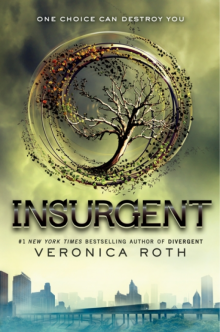 Insurgent
Insurgent Allegiant
Allegiant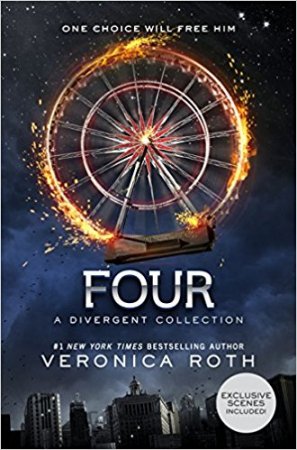 Four: A Divergent Collection
Four: A Divergent Collection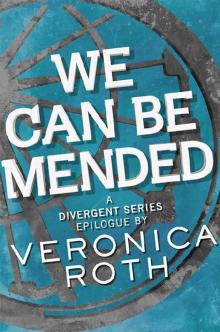 We Can Be Mended
We Can Be Mended The Son
The Son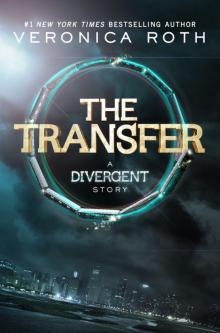 The Transfer
The Transfer The Traitor
The Traitor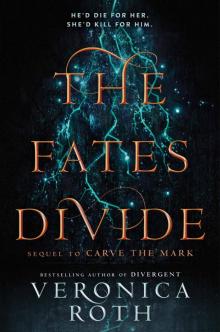 The Fates Divide
The Fates Divide Chosen Ones
Chosen Ones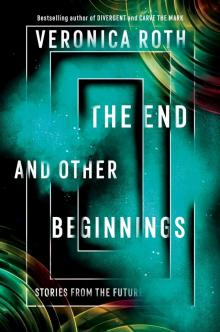 The End and Other Beginnings
The End and Other Beginnings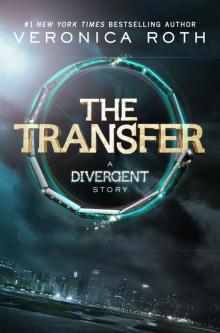 The Transfer: A Divergent Story
The Transfer: A Divergent Story Four_The Son
Four_The Son Divergent dt-1
Divergent dt-1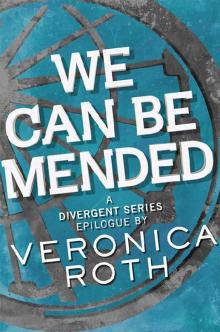 We Can Be Mended_A Divergent Story
We Can Be Mended_A Divergent Story![Ark [Forward Collection] Read online](http://i1.bookreadfree.com/i1/03/31/ark_forward_collection_preview.jpg) Ark [Forward Collection]
Ark [Forward Collection] Four_The Traitor
Four_The Traitor 10.22.13_The World of Divergent_The Path to Allegiant
10.22.13_The World of Divergent_The Path to Allegiant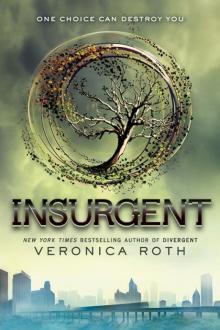 Insurgent (Divergent)
Insurgent (Divergent) The Divergent Series Complete Collection
The Divergent Series Complete Collection Divergent Collector's Edition
Divergent Collector's Edition Four_The Initiate
Four_The Initiate Insurgent d-2
Insurgent d-2